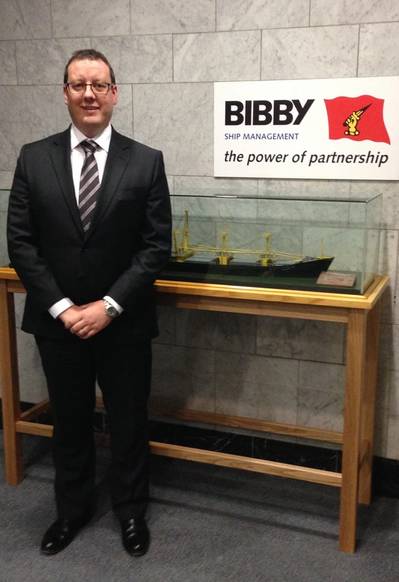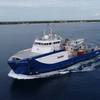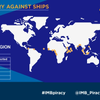Bibby Sees Hike Interest From Offshore Sector
Bibby Ship Management is seeing a near 20% increase in inquiries for its services from the offshore sector as ship owners and support vessel operators look to reduce costs and recruit the best crews for their vessels.
This development is fuelled in part by a move by the oil majors to reduce their costs in the aftermath of the slump in oil prices while still demanding high quality support vessel operations from ship owners who service their offshore supply needs.
Andrew Rodden, the Aberdeen-based Regional Managing Director for the UK and the Isle of Man, for Bibby Ship Management said owners were now looking to the economies of scale that managers can bring to the table. “There is a calculable commercial advantage to be made and there is a partnership between owner and manager which can benefit and improve the overall quality of the service delivered to the oil company,” he said.
He added: “Support vessel owners are operating in very high cost areas such as Aberdeen and Oslo and many are now looking to see if they can introduce cost savings without jeopardising the level of service. They are looking carefully at the OpEx of their vessels to see if they can save money from the crew employment perspective. We had one enquiry from an owner who traditionally employed high cost officers and who is now open to alternatives to man his ships while retaining their focus on quality.”
The drive to improve cost efficiencies is not just limited to the North Sea offshore sector, other high cost operators are being pressurised to cut costs while maintaining operating efficiency.
“The oil majors are all trying to reduce costs with the consequence that this has a knock-on effect on industries they work with. There will be a drive within shipping to reduce costs to meet the requirements of the client. This will be a challenge in a traditionally low margin highly competitive market where rates are driven by capacity. If owners can do this effectively then they will get more work so we are seeing a clear commercial benefit to ship owners to find effective strategies to drive their costs down,” said Mr Rodden.
The key benefit is the operational economies of scale that managers can offer, especially where there are owners with small numbers of vessels within a geographical region. They will have a shortage of options in terms of what economies of scale they can draw on to help them drive costs down, they cannot really cut their crewing costs nor can they drastically trim their travel expenditure or vessel procurement.
“Bibby Ship Management’s strength lies in its door to door, end-to-end service which will add value to the supply chain. Any ship owner can go to any company in the Philippines to get a Filipino crew, but the reality is being able to offer the security of doing all of that in-house. We manage and control that process, and we can add value at each step of the way,” he said.
Mr Rodden said ship managers also have the ability to leverage whatever cost-efficiencies and performance improvements they are building in to their shipping and marine operations onto the offshore business. An obvious area here, for Bibby Ship Management, is Mumbai in India where it has set up a strong crew recruitment, training and management operation.
And what about the effect of the fall in the global oil price? Andy Rodden said, “Offshore is quite a big catchall, but I think you’ll see a huge impact in terms of utilisation for the higher costs vessel areas such as diving support vessels and pipe laying vessels. So markets like the North Sea could experience quite a significant impact this year. We believe that there is still a solid platform supply vessel (PSV) market, which will remain so moving forward. The key to success in this market will be where owners can demonstrate value for money to secure continued work through 2015.”












